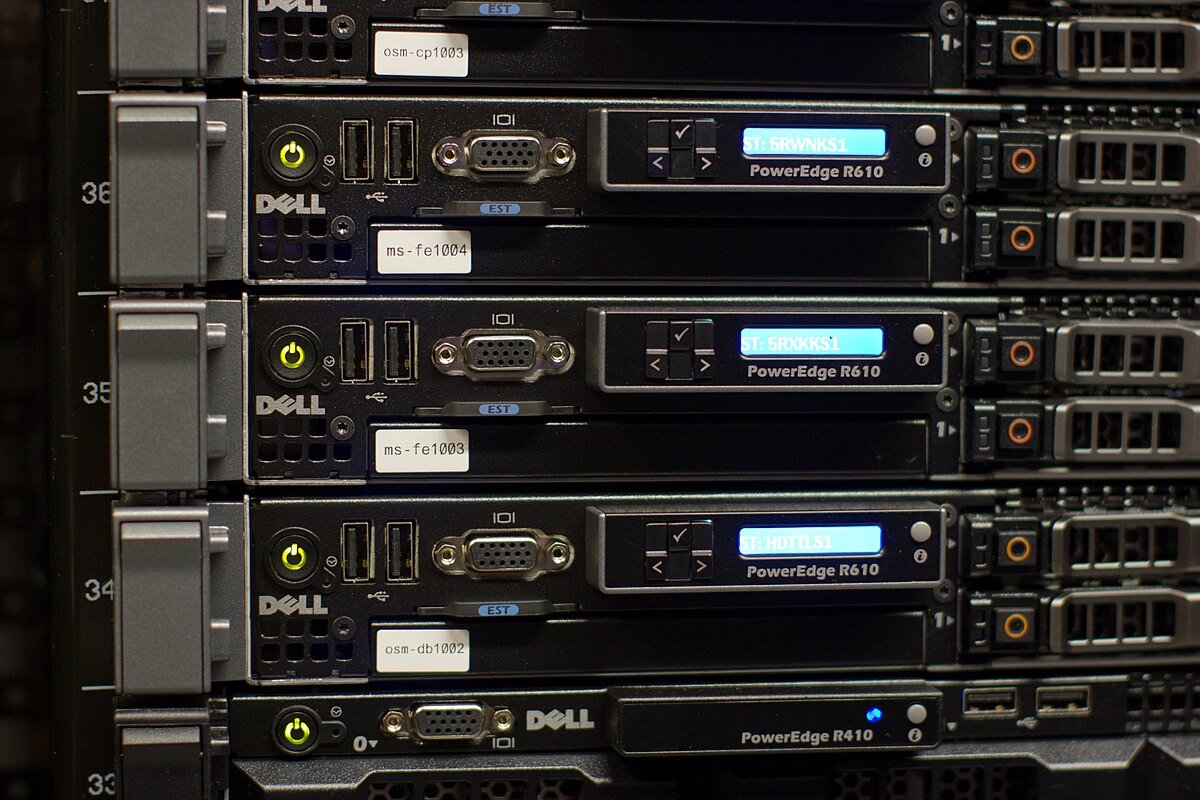About Dell Technologies
Dell Technologies, commonly referenced simply as Dell is one of the world’s leaders in the personal computer (PC) market. In fact, according to recent reports the company is in charge of around 17% of global PC unit shipments.
That’s a lot of computers.
While many might view Dell as just another gigantic computer and technology company, the company’s name has a slightly different ring to it where our team is located. Particularly, the company was founded by born and raised Texan Michael Dell while he was pursuing a degree at the locally acclaimed university, the University of Texas at Austin.
He dropped out.
No, we don’t think dropping out of college is a prerequisite to starting a computer company and becoming a billionaire, but it did happen to work for Mr. Dell.
While the company’s founding is an interesting story which is told through Dell’s recent publication, “Play Nice But Win,” I like the stories about companies that make money and do right by current and prospective shareholders.

Let’s walk through this story instead.
Dell Technologies primarily generates revenue through direct sales of Dell (PC) computers and other related accessories as well as through fees charged for its IT services. The company also provides services in cloud-related concepts along with data storage offerings.
Storied and successful are apt terms that can be used to describe the rise and domination of the PC and Dell.
However, let’s get a better understanding of whether or not it’s worth considering investing in the company moving forward.
The past is the past and we keep it that way at MacroHint.
Dell’s stock financials
The company’s stock is currently trading at around $49, has a market capitalization of $36.19 billion, a price-to-earnings (P/E) ratio of 7.36 and issues an annual shareholder dividend of $1.32.
Dell’s stock looks great so far, especially given that its current price appears to be considerably undervalued or below what it’s actually worth, given its prevailing P/E ratio.
Moving onto Dell’s balance sheet, the company’s total assets stand at approximately $92.7 billion to their roughly $94.4 billion in total liabilities.
Upon initially seeing where their total assets and liabilities stood, we were rather surprised to see that Dell’s total liabilities are higher than its total assets, even though not by that much.
After further investigation, we also noticed that among the company’s total liabilities roughly $56.2 billion of it is categorized as total current liabilities.
This tends to mean that this is the amount of debt due for repayment within a year’s span of time.

Even for Dell, that’s a lot.
We don’t necessarily think Dell will default on this debt given the size, scale and reputation of the company, however we do find it slightly worrisome that this large amount of debt is seemingly due for repayment pretty soon.
Onto Dell’s income statement, the company recently reached a huge milestone of reaching over $100 billion in total revenue in 2022 (reported January 28th, 2022).
That’s a major accomplishment for any billion-dollar company.
What’s even more exciting to us is that in years prior their total revenue has been generally stable and even trending upwards amidst COVID-19 and the supply chain hurdles. Specifically, their total revenue in 2018 stood at around $79 billion and rose to just north of $90 billion in 2019, dwindling down to around $84 billion in 2020 and getting back on the upswing in subsequent years.
Additionally, the company has reported stable, predictable net income (according to the cashflow statement) in the past five years, only being negative in 2018 and 2019 which can likely be attributed to acquisitions and reinvesting in new technologies and businesses.
We have no complaints if that’s the case.
Dell’s stock fundamentals
Let’s compare Dell to its competition and see how the company in question compares.
We’d first like to point out that while it’s not meant to be an excuse, Dell operates in a fiercely competitive landscape and its main competitors include, but are by no means limited to Lenovo, HP, Apple, Acer and many others.
From a numbers standpoint, Dell’s trailing twelve month (TTM) net profit margin is 4.93% to the industry’s average of 24.7%, according to TD Ameritrade’s platform.
We find Dell’s current net profit margin alarmingly low.
While we have no problem acknowledging that they brush up against some serious competition, we would’ve hoped Dell itself would’ve been a lot more competitive when it comes to the company’s ability to generate a profit.

Additionally, the company’s TTM returns on assets and investment are strikingly lower than that of the industry average, which doesn’t exactly invoke a lot of confidence in our team.
It’s one thing for the company to be somewhat far off from the competition when it comes to its ability to produce a profit, however it’s another when Dell appears to be frighteningly far from reaching, let alone exceeding the industry’s average.
If the company seemingly struggles to generate competitive returns for itself, how can we expect the company to be able to generate future returns for its shareholders?
Should you buy Dell stock?
We’re not exactly sure why the company’s returns and profit margins are so disappointing, but we do know that they don’t make us feel compelled to invest in the company’s stock right now.
While the company’s stock is supposedly undervalued, we think there are other companies in the PC and technology space in general that are better equipped to provide returns to its shareholders, mainly because they have a substantially better track record of doing just that.
Dell is still a technology leader with likely many value levers to pull, but profitability, especially for a company at Dell’s stage is vitally important to us.
Given all of this information, we give Dell stock a “hold” rating.
DISCLAIMER: This analysis of the aforementioned stock security is in no way to be construed, understood, or seen as formal, professional, or any other form of investment advice. We are simply expressing our opinions regarding a publicly traded entity.